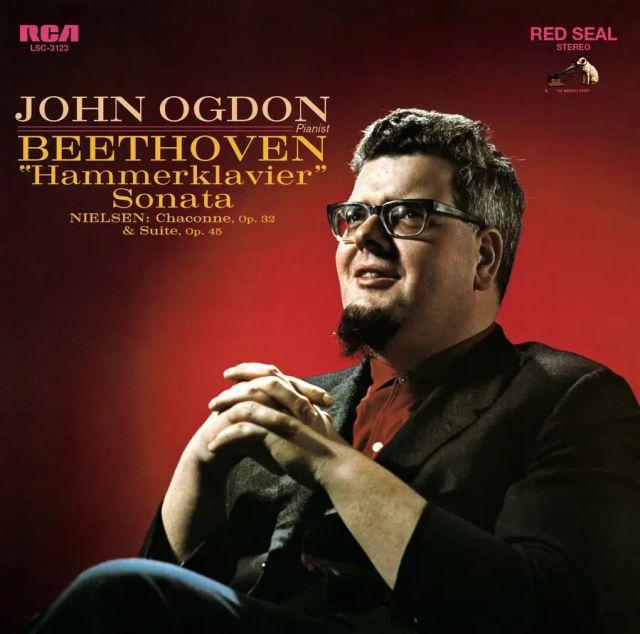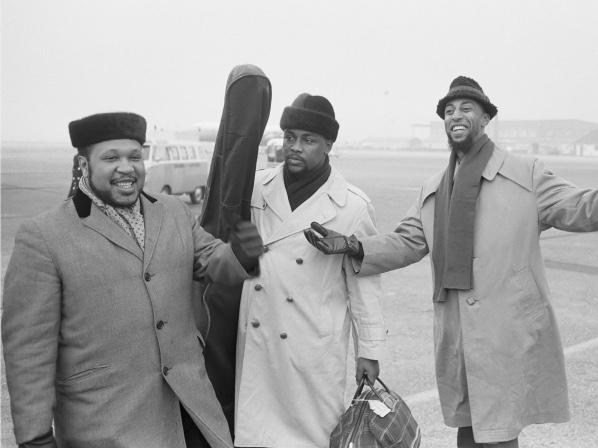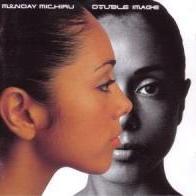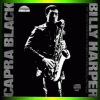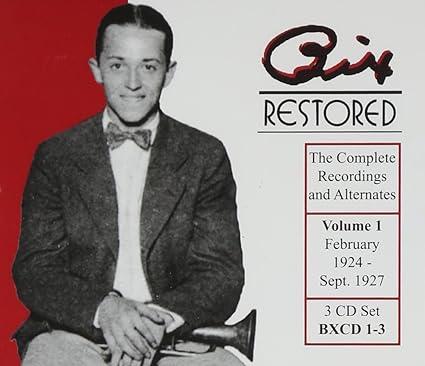All Activity
- Past hour
-
Excellent .... special mention goes to unsung Bob Neloms .... btw the Landmark CD reissue from 1994 adds a fiery alternate version of "Cumbia And Jazz Fusion" ....
-
RICHARD SUSSMAN Quintet “LIVE AT SWEET RHYTHM” Origin cd With Tom Harrell and Jerry Bergonzi 550×550 56.8 KB 800×681 142 KB
-
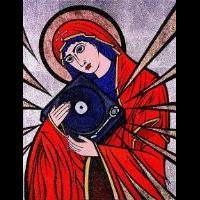
What Classical Music Are You Listening To?
Referentzhunter replied to StarThrower's topic in Classical Discussion
-
Sonora Poncena "Ñáñara Caí" (Inca Records) 1976 .... the genius of Papo Lucca spread all over and Luigi Texidor at full blast .... arguably one of the best Sonora Poncena LP`s ....
- Today
-
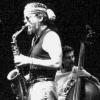
Sonny Rollins - Freedom Weaver: The 1959 European Tour Recordings
Clunky replied to colinmce's topic in New Releases
I think the sound on the RSD set is slightly better compared to the Dragon LP. Frankfurt sounds well balanced but as rough as boots I've heard. The Swiss date is the same as the TCB CD. The Aix set is new to me and sounds excellent and it's worth it for that alone. Is Zev the new Orrin Keepnews..? -

What Classical Music Are You Listening To?
soulpope replied to StarThrower's topic in Classical Discussion
Revisiting this superb Geza Anda recital @ Salzburger Festspiele in 1972 .... -
-
Molly Tuttle & Golden Highway „Crooked Tree“ (Nonesuch Records) 2022 ….
-

What Classical Music Are You Listening To?
Referentzhunter replied to StarThrower's topic in Classical Discussion
-
Jack McDuff “Ain’t No Sunshine” Reel to Real cd 2 Sounds nice and dynamic on my system. Waking me up on this cool morning Sunday. Jack McDuff – Hammond B3 Organ Leo Johnson – tenor saxophone, flute and clarinet (left channel) Dave Young – tenor and soprano saxophone (right channel) Vinnie Corrao – guitar Ron Davis - drums *trumpet player unknown
-
Without naming him aka John Carbone he will remain even more obscure 😇 .... thnx for sharing though .... btw the bass players on both "Everything Is Everything" albums (the combo is alternatively called Group Everything Everything Everything) are also Reggie Workman and Dave Holland .... not bad choices at all 👹 ....
-
I played with one bass player back in the 70s, his only jazz credit is a band Teramusa Hino formed called Everything is Everything, who only released one album,"Just a Flash in the Cosmic Plan", and he was an excellent, underrated, obscure player, but that's about every bass player in NYC. I chose JC, because he was a player in the pit of a theater in NY I used to play in, and he used to get so polluted from the cloud of weed he'd do before every show, that one night he broke two bass strings during one show(!) We were playing something called TSOP, all Philly Disco music, and he was playing heavy funk fills all over the place, and the first time it happened I thought, "wow, that's never happened before," but the second time it happened, I thought "demonic weed".
-

Sonny Rollins - Freedom Weaver: The 1959 European Tour Recordings
soulpope replied to colinmce's topic in New Releases
Same here .... -
Beautiful Cover Art ....
-

Obscure or Underrated Bassists
Stevie Mclean replied to Stevie Mclean's topic in Miscellaneous Music
Great player, and he's got style as well! Ack, I forgot about that. let me know when I can get my ears on it,I'm not a fan of window shopping. 😢 -
WTF Oakland?!?!
-
Scoop - Netflix
-
Ordered.
-
Release date July 5: NEA Jazz Master Louis Hayes certainly personifies the term "living history." Born in Detroit, Hayes packed up his drum set and caught a train east, arriving in New York City in 1956 to join the Horace Silver Quintet. In 1959 he joined the Cannonball Adderley band, finding himself, in his early 20s, at the nerve center of the jazz world. He would visit John Coltrane in his apartment and was to make several justly famous recordings with him. Over the next 60 years Hayes amassed an impressive body of work, playing and recording with Oscar Peterson, Dexter Gordon, Grant Green, Kenny Burrell, Cedar Walton, Sonny Rollins, Woody Shaw and countless others. His latest recording on Savant, Artform Revisited, may fondly recall some of Hayes' old friends, but it also stands on the summit of today's post-bop sessions. Surrounded by his recording band of choice, Hayes' vibrant and colorful drumming supports a carefully chosen set list. Two new compositions by Hayes are featured along with some Charlie Parker tunes, the John Lewis version of "Milestones" and the beautiful but seldom-heard Bobby Troup ballad, "You're Looking at Me." Through it all, Hayes proves himself to not just a great drummer, but also a gifted and charismatic leader, inspiring his players to give their best and delivering performances born of his vast experience and exhibiting the mutual respect of all those concerned.
-
My sister sent me a clipping of a recent WSJ article by John Edward Hasse called "Duke Ellington's Singular Swing." He writes, "He led his ensemble through 10,000 recordings, an estimated 20,000 performances..." Does that sound right? His performances were only double his recordings? For every 12 songs he recorded, he performed only 24 times? 10,000 recordings divided by 12 would equal 833 albums. What do you think? 1,000 recordings?
-
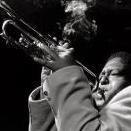
Return Of The Film Corner Thread
gmonahan replied to JSngry's topic in Miscellaneous - Non-Political
Just saw "The Fall Guy." Fun movie. -
Just listening to him this morning on Time For Tyner, where he is outstanding.
- Yesterday
-
Back to reading Nat Hentoff's _Hear Me Talkin' To Ya_ again and the chapter on this guy. Thank goodness, as always, for John R. T. Davies!
-
L'il Miss Martha - Riders Up!!!
_forumlogo.png.a607ef20a6e0c299ab2aa6443aa1f32e.png)
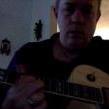
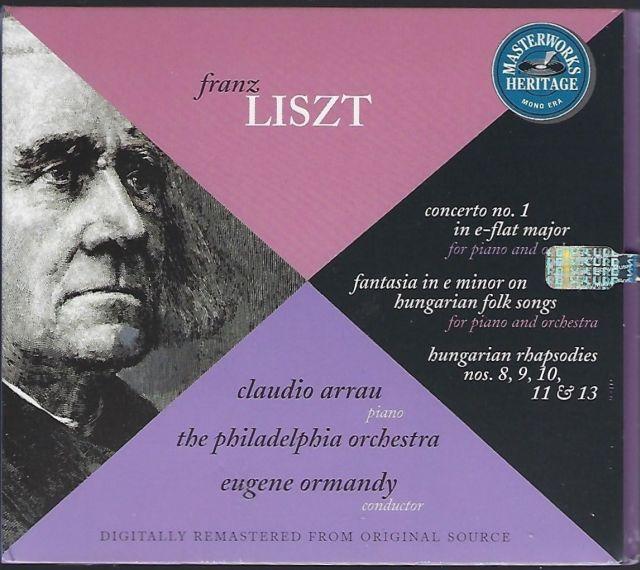
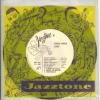
.jpg.0699f68e70a21e2dd10210d2f7a4030c.jpg)
.jpg.05da70b90434fad3152c382d45ecffb3.jpg)
.jpg.12b0fd59965ab1f435427b2d7f056a4b.jpg)
